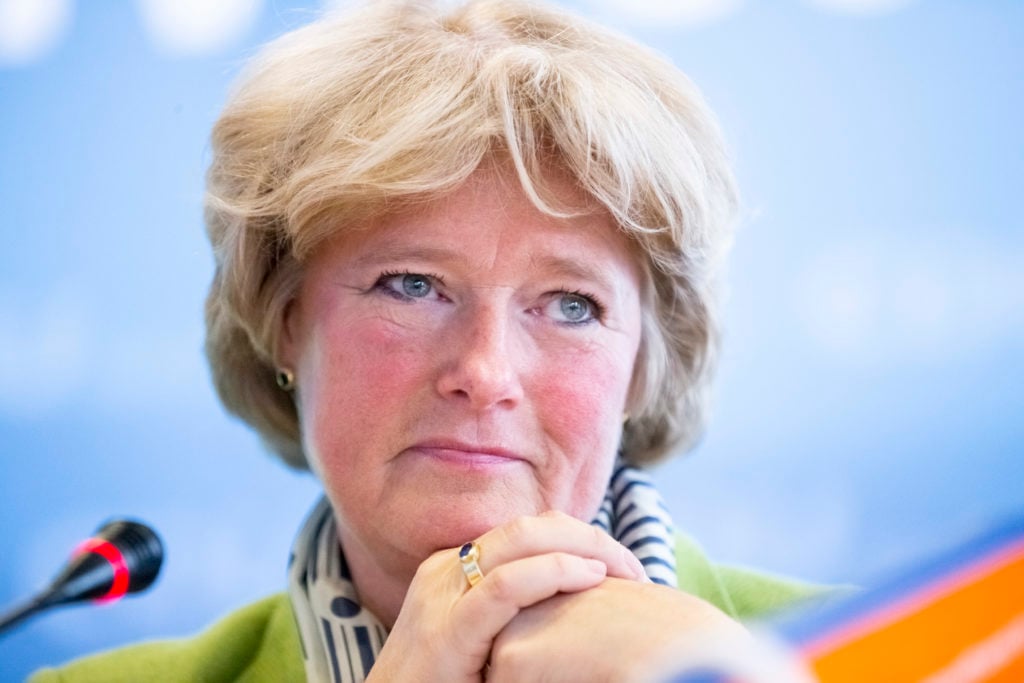Politics
More Than 100 Academics Have Signed a Letter Demanding That Germany Immediately Open Its Colonial-Era Collections to Researchers
The petition puts increased pressure on the German state to act swiftly.

The petition puts increased pressure on the German state to act swiftly.

Kate Brown

A distinguished group of academics, artists, and museum professionals have published a passionate open letter demanding that German museums open up their inventories so that research into colonial-era objects can effectively begin.
A growing list of 100 signatories, including Felwine Sarr and Bénédicte Savoy, the authors of a groundbreaking restitution report commissioned by French President Emmanuel Macron, condemn what they claim to be limited access to German museum inventories, labeling the situation “scandalous.”
The public letter was published this morning, October 17, in the German daily Die Zeit, the morning after the government revealed plans for a centralized authority to handle information requests from countries of origin about colonial-era objects in German hands. That plan, according to the government’s announcement, will be implemented in the first quarter of 2020.
“Creating transparency is a cornerstone and an important field of action,” the culture minister, Monika Grütters, said in a statement. “It will be a central task of the contact point that was founded today.”
But the authors behind the public letter say they are tired for waiting for action. In their plea, they demand “unrestricted” and “unchecked” access to inventories of African artifacts in order for independent provenance assessments to take place.
“Precisely which African art is preserved in public museums in Germany today? From which regions? Which type of objects? We want and need to know this if we want to work together on the colonial past,” they write.
The public letter acknowledges strides taken by some European governments, including Germany’s pledge of €2 million to fund research projects into colonial-era objects, as well as Macron’s commissioned report. But it insists that open access to inventories, even if the information they contain is incorrect or incomplete, is the crucial next step.
“Knowledge of the holdings is an essential prerequisite for any dialogue,” the authors write. The signatories, including many researchers, claim that museums have said they must first digitize their inventories internally before opening things up completely, which the group says is a stalling tactic. “Work on the inventories will never be complete and will always remain a work in progress,” they write. “There is no need to wait.”
Already the Prussian Cultural Heritage Foundation, which oversees Berlin’s Humboldt Forum and other museums, has fired back.
In the statement released today, the organization stressed that it was engaged in “intensive collaboration” with countries of origin. “The debate about object biographies of African collections is not a new topic. On the contrary: it has been part of the everyday life of the curators of the Ethnological Museum [in Berlin] for years,” it states, adding that its efforts would be improved if it had more funding and staff. (The 2019 operating budget for the foundation is €220 million, according to its website.)
“Anyone who deals with the work of museums in Germany without prejudice knows that they are making great efforts to disclose their holdings and create transparency,” the foundation added.
These most recent developments come amid growing pressure on European museums to reckon with their colonial pasts. The conversation, long held behind closed doors, has flooded into the mainstream in recent years, sparked in particular by the construction of the Humboldt Forum in Berlin, which will house Berlin’s muscular ethnographic collection of at least 50,000 objects taken in various ways from African territories during the colonial era. The fire was stoked again upon the publication of Macron’s restitution report, which laid out an urgent call for repatriation to former colonies.
Germany had several colonies in Africa, including in parts of modern-day Ghana, Togo, Cameroon, Rwanda, and Namibia. France operated colonies in present-day Senegal, Mali, French Guinea, and the Ivory Coast, to name a few.